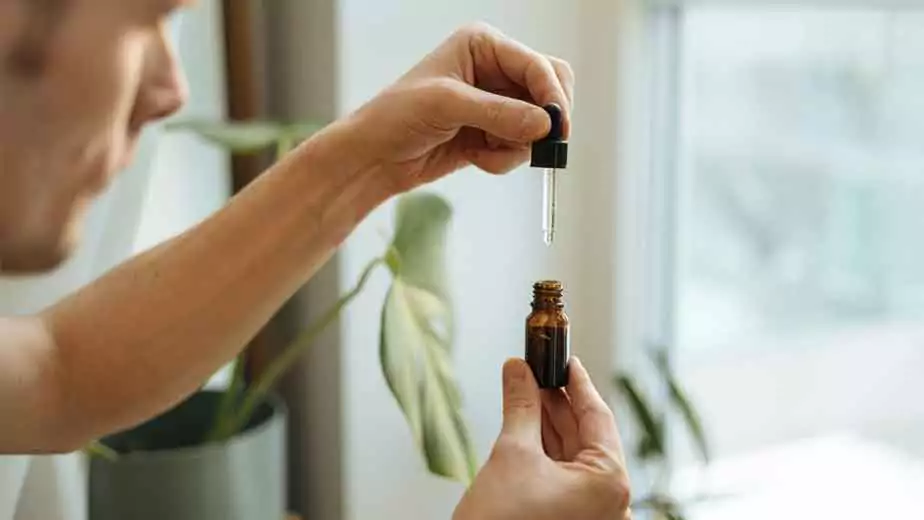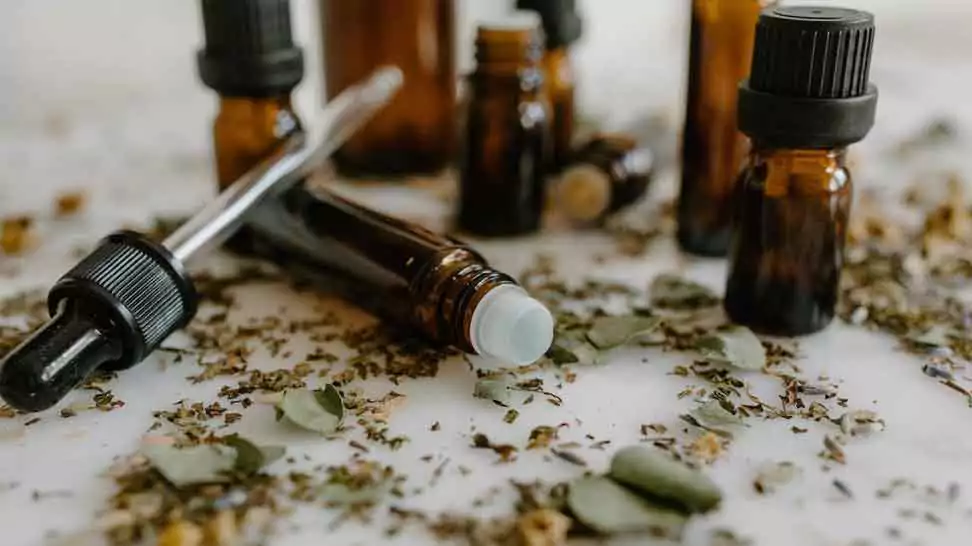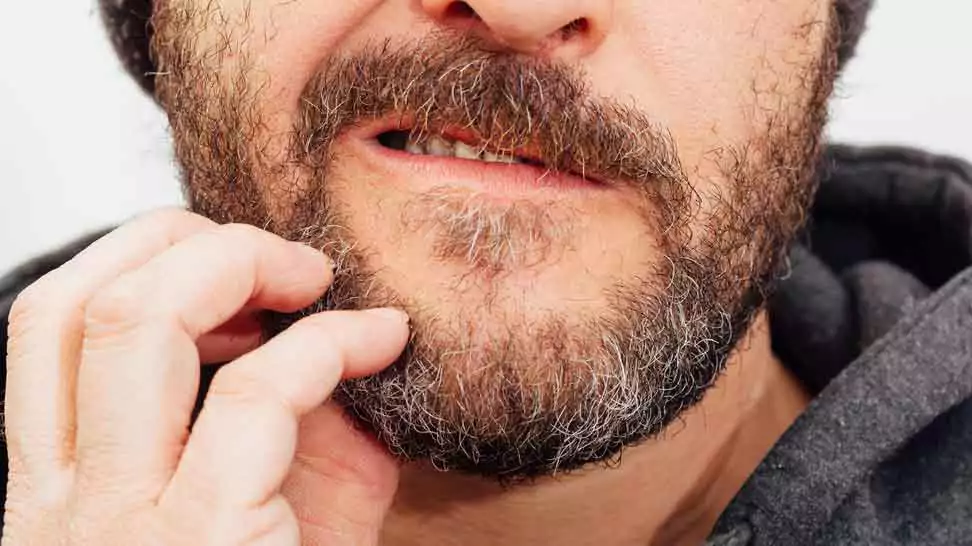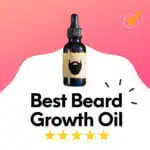5 Intense Benefits and Side Effects of Beard Oil

Beard oil is a popular grooming product among most men these days. The versatility of this essential beard product makes it the perfect moisturizing, styling, and soothing product for your whiskers. A reputable brand that puts its products through cosmetic testing makes beard oil safe to use. There have been reports that cheap products use dangerous quantities of essential oils and synthetic fragrance oils. Besides causing skin reactions, there can be other side effects of beard oil as well.
The question is, however, is beard oil safe for your facial hair and the skin underneath? Let’s take a closer look.
1 Exploring the ingredients in a beard oil

The primary components of beard oil are mainly essential oils and carrier oils. Carrier oils do most of the work for conditioning, moisturising, and softening your skin and beard. Essential oils add a distinct fragrance to beard oil, making it even more appealing. In addition, some essential oils are anti-inflammatory and antibacterial in nature.
The two best and most popular carrier oils are jojoba and castor oil. Below are some additional carrier oils that are commonly found to enhance the benefits of beard oil.
- Sunflower Seed Oil
- Sweet Almond Oil
- Castor Oil
- Grape Seed Oil
- Argan Oil
- Avocado Oil
2 Ingredients to avoid in the beard oil
- Silicon
In addition to giving the appearance of a shiny, healthy beard, these plastics can prevent essential nutrients from penetrating the hair shaft.
- Sulfate
Most cheap cosmetics contain sodium lauryl sulfates. In addition to stripping out too much oil, these cleaners cause hair to become dry and brittle.
- Paraben
Many cosmetic products use paraben as a preservative. Some suspect parabens cause health problems, but there isn’t conclusive evidence to prove it.
3 Side Effects of using a Beard growth oil

1. Sensitive to sunlight
Many essential oils in beard oils increase your skin’s sensitivity to sun rays. The increased skin sensitivity to sunlight increases the risk of sun damage due to the UV rays in sunlight.
A few phototoxic essential oils present in beard oils are:
- Lemon
- Orange
- Bergamot
2. Reactions due to allergies
Several variations of oils are used to create beard oils, which can be suitable for some skin types, but not others. Even though most oils are natural, there can still be an allergic reaction on the skin from the side effects of beard oil due to their composition with each other.
Unless you are allergic to a certain ingredient, even a small amount of essential oil can cause skin problems – even if you have an ongoing allergy.
Our team of experts have listed some oils which were found most likely to trigger allergic reactions and other side effects of beard oil:
- Lavender Oil
- Peppermint Oil
- Tea-tree Oil
It is advisable to start applying a few drops at the beginning and gradually increasing the amount of beard oil after a few days.
3. Makes your skin dry and dandruff-prone
Some beard growth oils can make your beard and skin underneath itchy and uncomfortable, inhibiting beard growth; this may negatively affect the hormones involved in growing facial hair. Further, you may likely suffer from dry skin and dandruff over time.
We strongly recommend you drop off your beard oil if it contains these oils with polysaturated fats:
- Canola Oil
- Hamp Seed Oil
- Sesame Seed Oil
4. Acne Breakouts
People who survived beard acne know how painful it is to witness a red bump or pimple appear underneath their beards. In addition, you may notice a week’s usage of excessive beard oil and not washing your face properly will result in clogged pores. This excess oil mixes with the dirt trapped inside the pores and natural oils released by your skin.
Here are some comedogenic ingredients used in beard oils that may cause acne:
- Coconut Butter
- Coconut Oil
- Sweet almond Oil
- Safflower Oil
- Soybean Oil
5. Patchy Beard or Unwanted Hair Growth
If you are using beard oil all over your face or your oily fingers come in contact with areas with good blood circulation, there are chances that you may see unwanted hair growth around your face.
Many beard oil users have faced the problem of a patchy beard. This is due to the uneven application of beard oil.
4 Benefits of using a Beard growth oil

1. Keeps the beard soft, hydrated and nourished
In order to grow your beard well, you need proper nutrition and hydration. Beard oil is not just meant for styling. Along with nourishing the skin beneath the beard, it also moisturises it. The skin under your beard is sensitive. When 1you are growing a beard, the skin absorbs moisture leaving a dry and acne-prone area. Beard oils reach the follicles to keep your skin hydrated and nourished.
2. Protects the beard against dandruff and itchiness
It is common for your beard to attract a large amount of dust and dirt throughout the day. Having dry and dead skin can tempt you to scratch your beard, which can grow dandruff. When you scratch your dead skin, it sticks to the beard as dandruff, along with debris already trapped in the hair. Applying beard oil adds nourishment that reduces irritation, itchiness, and dandruff.
3. Makes the flyaway hair easily manageable
It’s hard to grow a beard, but the challenging part is to manage untamed flyaway hairs. It is a tedious task to manage dull and dry hair when 1you have a long beard. A well-groomed beard can look great, but if you cannot maintain a clean neckline and shave your facial hair properly, it may look messy. Beard oil, however, makes managing and combing your beard easy.
4. Infuses the beard with a musky aroma
Many beard oil products today come in sweet, pleasing and masculine scents. Depending on which essential oils are used in the beard oil, your beard can smell great all day long. It is a great add-on to have a fresh and pleasant-smelling beard all day!
5. Provides relief from inflammation and open-pores
Depending on your skin type, a good beard oil can prevent redness and irritation from harsh chemicals from shampoos or environmental changes. In addition, beard oils can help clean acne-prone skin and nourish it due to their non-interfering nature with sebum production and don’t clog pores.
5 Are there any natural alternatives to beard oil?
Natural alternatives to synthetic ingredients
If you are looking for natural ingredients along with benefits of beard oil to your skin and help you grow a long beard, you can use these oils:
- Jojoba Oil
- Argan Oil
- Mineral Oil
You can use these oil without any added fragrance to cherish their moisturising and softening benefits.
DIY beard oil
Yes, you heard it right! It is possible to make beard oil at home. You’ll need a glass bottle with a dropper top to store beard oil.
Follow these steps to prepare a beard growth oil in the comfort of your home:
- First, pick a carrier oil with no scent and a light texture.
- Next, you can add your favourite essential oil and experiment with these carrier oils according to your preference.
- Mix 2 to 4 tablespoons of carrier oil with 5 to 10 drops of essential oil.
- Store the beard oil at room temperature and keep it away from direct sunlight.
6 Are there other effective ways to encourage beard growth?
Your genetics and hormones, including testosterone levels, play a significant role in beard growth. However, there are some healthy lifestyle habits suggested by doctors and experts that may help you boost your testosterone levels:
- Eating a healthy and whole meal with protein, healthy fats, and complex carbohydrates.
- Supplements with vitamin D and zinc can be beneficial.
- Working out, performing exercises, and lifting weights on a daily basis.
- Make sure to get at least 8+ hours of quality sleep.
- Avoid taking too much stress on yourself!
7 Wrapping Up
The benefits of beard oil and the side effects of beard oil must be tailored to your individual interest, and it should be used along with beard balm, beard shampoo and beard conditioner as part of a complete beard care routine. Investing in a beard oil and knowing how to use a beard oil the right way is a smart move if you want your facial hair to look amazing and boost your confidence. Apply a small amount of your beard oil to your skin and leave it there without touching or rubbing it. Wait a full day to see if there are any reactions.
FAQ's about Beard Growth Oils
Is it safe to use beard oil everyday?
Yes, you can safely use beard oil every day if it is sold by a reputable company that has passed cosmetic testing. As per our experts, it is recommended that you use it at least once a day for the full benefits of beard oil for beard growth and skin care.
How long do I leave beard oil on?
Beard oils are generally formulated to get quickly absorbed into the beard and facial hair, so don’t worry if it feels sticky when applied. After applying the beard oil, let the beard absorb it for 10-20 minutes before applying any other cosmetic products. You should apply the beard oil at night and let it work all night to achieve the best results.
How many times use beard oil in a day?
Beard oils can nourish your beard in a lively and optimal way. We recommend using it once a day depending on your lifestyle. Using a beard oil regularly can prevent your beard from becoming dry which can eventually cause soreness and itching.
Should I wash my face after using beard oil?
The thickness or concentration of a beard oil depends on its intensity to get absorbed into the skin. The consistency of beard oil can range from thin, medium and a thicker one. A thick beard oil might not get absorbed completely into your skin and can leave a bit of residue behind. It is necessary to wash your face after applying beard oil in this case.
At what age does beard growth stop?
There is no particular age when facial hair stops growing, but 35 is considered the average age when a beard stops growing further. It is common for men to go through this process gradually, as their beard becomes thinner and patchier with time. While some may notice a sudden interruption in beard growth, stopping all together.
Community Q&A
About This Article
This article has been viewed 1712 times.



